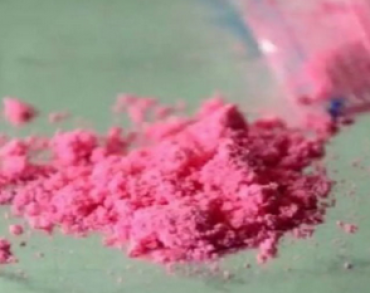What is tuci?


Drug checking services in New Zealand have been seeing increasing presentations of pink powder at clinics. What is in it and what are the risks?
Tuci is a pink-dyed powder that contains a mixture of different drugs. It is known by many names including tusi, tucibi, and pink cocaine. Tuci first emerged in South America around 2018 and gained popularity in and around the nightlife/club scene. Since then, detections of tuci have been reported around the world.
A small number of tuci detections were made in New Zealand this year. These have primarily been through presentations to drug checking services. In New Zealand, tuci mixtures commonly contain ketamine and MDMA, however most samples contain other substances, including, cocaine, caffeine and new psychoactive substances (NPS).
Given the popularity of tuci overseas, it’s likely we’ll keep seeing it in New Zealand.
Stay safer by staying informed. Sign up to receive alerts and notifications about any dangerous drugs in NZ. Check out the alerts page to see what we've already found.
Is it just cocaine that’s been coloured pink?
No. While cocaine is sometimes a component of tuci mixtures, it’s not purely cocaine that’s been coloured pink.
Is tuci the same as 2C-B?
No. There are rumours online that tuci was invented to mimic 2C-B, however, while they may have originated from similar paths, these substances are different and have distinct effects.
2C-B is part of a family of drugs sometimes described as being ‘somewhere in between MDMA and LSD’ due to producing both stimulant and hallucinogenic effects.
The similarities in pronunciation can cause confusion when dealing with these drugs. It is important to be sure what substance you have so you can make informed decisions and take the right steps to reduce potential for harm.
What are the risks of tuci?
As tuci is not a single drug, but rather a combination of drugs, it can often have unpredictable effects. In most cases, people who use tuci are unaware of what substances, and how much of substances, are present in the powder. This makes its use especially dangerous as people can experience effects that may not be expected or prepared for. Some drugs found in tuci, including LSD and ketamine, can have quite intense and undesirable effects for people who may not have intended to use these substances.
While no drug use is safest, there are some steps that can help reduce the risks.
Drug checking is recommend to help lower the risks. You can't tell what something is by sight and smell alone. Drug checking is free, legal and confidential. KnowYourStuffNZ, the New Zealand Drug Foundation and the New Zealand Needle Exchange Programme (DISC) run regular drug checking clinics across the country. Information on upcoming clinics can be found on The Level – check the schedule here.
It's worth noting that, because tuci contains multiple substances, reagent testing isn’t a great way of checking your substance as you may not be able to identify all of the substance present.
Lower dosages usually pose less risk. Start off with a small amount to check how it affects you. In general, swallowing a substance has a slower onset than other methods and means there might be more time to get medical help if needed. Remember, every person is different and can respond differently to a substance. Don’t assume every dose will produce the same effects.
Avoid combining tuci with other substances, including alcohol. Mixing any combination of drugs and alcohol can be dangerous. The impact on your body and mind become even more unpredictable, and harder to manage.
Avoid using alone. As with all drug use, it’s better to have people around that you trust and who can help, and call an ambulance, if things go wrong.
What to do in an emergency
Call 111 and ask for an ambulance immediately if you or someone else has any of the below signs after taking this substance. Tell them what you have taken, you won’t get in trouble and it could save your life.
- Starts to lose consciousness or is unconscious
- Stops breathing
- Has a seizure
- Feeling extremely agitated for longer than 15 minutes
- Has chest pain or breathing difficulties for longer than 5 minutes
Are you concerned about your own drinking or drug taking? Reach out to the Alcohol Drug Helpline on 0800 787 797, or text 8681. You'll be able to speak with a trained counsellor who can provide you with helpful information, insight and support. They’re available 24/7, all calls are free and confidential.